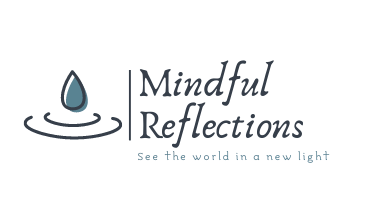4 Long Term Effects of Birth Trauma
Giving birth is a complicated experience. If anything goes wrong during childbirth or doesn’t go as expected, it increases the risks of being left with birth trauma. And if you feel wronged by the medical staff? Disrespected, unheard, or not taken into account? The experience might also seem traumatic to you.
Everyone experiences trauma differently. We’re not all the same, so what might be traumatic for us might not be for our neighbor. But that doesn’t make trauma any less real or valid. Birth trauma can have real consequences for you and your family. While trauma always manifests differently for each of us, the root of these consequences tends to stay the same.
1. Altered Relationship with Your Baby
The impact birth trauma can have on your relationship with your baby is unfortunately strong. It can leave you thinking your relationship with them has been damaged, maybe even forever.
Depending on the kind of trauma you experienced during childbirth, you might even blame your baby for any injuries you have. On the other hand, maybe you think your baby would be better off without you.
It’s not uncommon for mothers with birth trauma to be reluctant to breastfeed their children. While some might force themselves to do it anyway, others might stop breastfeeding their baby altogether, which affects the bond between mother and child.
2. Altered Relationship with Your Partner
If sex reminds you of the traumatic birth you experienced, that’s okay. It’s not unusual. No matter how close you are to your partner emotionally, it won’t stop you from remembering what happened. Planning another pregnancy can also make you hesitant to have sex.
If you don’t manage to communicate your needs well, the intimacy you and your partner share will suffer. And if the intimacy between you and your partner suffers, then so does your relationship.
They say communication is key for a reason, and support is vital for your recovery. Talk to your partner, explain what’s happening. We all want to help our loved ones when they’re going through a hard time. All you have to do is trust them to have your back and explain.
3. Altered Opinions on Childbirth
A traumatic birth can change your opinion on childbirth. Maybe before, you planned to have two or more kids. You might even have planned for another pregnancy soon after the last one. But a traumatic birth will leave you wondering if that’s what you really want.
It’s not uncommon for mothers to postpone having another child until they recover from the trauma of the first traumatic childbirth. It’s understandable too. Giving birth is scary, especially when your last time was worrying. Other people, however, decide not to have any more kids at all, even if they previously wanted more. And can we really blame them?
4. Mental Health Problems
Birth trauma, like all traumas, can affect your mental health, and not for the better. It impacts your self-esteem, your emotional state. You might find yourself more irritable than usual or, on the contrary, you feel nothing at all, numb to the rest of the world. It can make you feel sad or exhausted.
It’s also possible you feel much more anxious than you used to, always wondering if something’s gone wrong. You might experience recurring flashbacks, and maybe even nightmares that make it hard to sleep at night. And, in all likelihood, you avoid mentions or places or anything at all that reminds you of the traumatic time in which you gave birth.
Many people who experience birth trauma find that they can’t cope with it alone. They need help. There’s nothing wrong or shameful about that. So, if you’re in this situation, don’t hesitate to reach out and schedule a time to talk. You don’t have to go through this alone.
To learn more about how Mindful Reflections can help, check out our Birth Trauma Therapy page.
Previous Posts
Complete Guide to Postpartum Depression
You are not alone.If you’ve found your way here, it’s likely that you — or someone you deeply care...
Can You Have Postpartum Depression After Miscarriage?
Miscarriage is a profound and often isolating experience. For many, the emotional impact is deeply...
Postpartum Therapy for C-Section Recovery: Emotional Healing Beyond the Physical
For many mothers, a C-section can feel both miraculous and overwhelming. While the physical scars...





